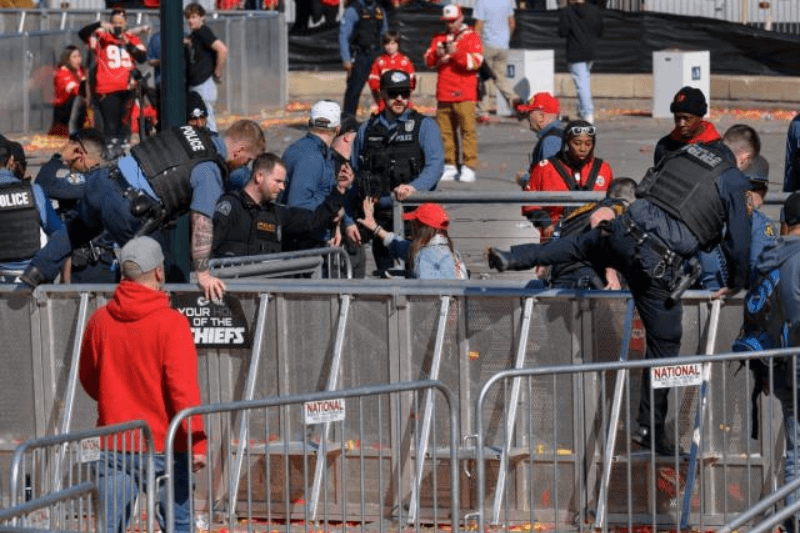
Unraveling the Kansas City Shooting: Understanding the Tragic Events
The recent shooting incident at the Kansas City Chiefs Super Bowl victory parade has left the nation in shock and mourning. As details continue to emerge, it’s imperative to delve deeper into the circumstances surrounding this tragic event and explore the broader implications it carries.
Overview of the Shooting Incident
On a day meant for celebration and jubilation, tragedy struck as gunfire erupted amidst the crowd gathered at Union Station to honor the Chiefs’ historic Super Bowl win. The indiscriminate shooting resulted in 22 individuals sustaining gunshot injuries, with the victims’ ages ranging from eight to 47 years old. Among the injured was Elizabeth Lopez-Galvan, a beloved local DJ and mother-of-two, who tragically lost her life in the chaos.
Law Enforcement Response and Investigation
In the aftermath of the shooting, law enforcement swiftly responded, detaining three individuals, including two juveniles, suspected to be involved in the incident. While details surrounding the perpetrators and their motives remain scarce, Kansas City Police Chief Stacey Graves indicated that the shooting likely stemmed from a dispute among individuals and was not linked to terrorism.
Political Discourse on Gun Control
The Kansas City shooting has reignited the ongoing debate surrounding gun control measures in the United States. President Joe Biden was quick to condemn the violence, calling for stricter gun control legislation—a plea that has faced staunch opposition from Republican lawmakers. The incident also prompted scrutiny of Missouri’s lenient gun laws, which have been criticized for their lack of stringent regulations on firearm purchase, concealed carry permits, and ownership restrictions.
Understanding Missouri’s Gun Laws
Missouri’s gun laws have long been a subject of contention, characterized by their leniency and minimal regulatory oversight. The state’s lack of mandatory background checks for firearm purchases, absence of concealed carry permits, and permissive stance on assault weapons have drawn criticism from gun control advocates and experts.
Keep Reading
In particular, the Giffords Law Center has labeled Missouri’s gun laws as “appallingly weak,” citing loopholes that allow individuals with violent criminal histories to possess firearms freely. Furthermore, the state’s enactment of the “Second Amendment Preservation Act” in 2021—which aimed to nullify federal gun regulations—underscored Missouri’s resistance to federal oversight on gun control measures.
Legal Challenges and Judicial Rulings
Despite Missouri’s efforts to bolster its pro-gun legislation, legal challenges have emerged, challenging the constitutionality of certain provisions. A federal judge’s decision to strike down the “Second Amendment Preservation Act” as unconstitutional marked a significant setback for proponents of the law. Subsequent rulings by higher courts, including the Supreme Court, upheld the decision, reaffirming the limitations of state laws in circumventing federal regulations on firearms.
Implications for Public Safety and Policy Reform
The Kansas City shooting serves as a sobering reminder of the urgent need for comprehensive gun control reform in the United States. Beyond offering condolences to the victims and their families, policymakers must prioritize legislative action aimed at curbing gun violence and addressing the systemic issues underlying mass shootings.
Efforts to enact universal background checks, implement red flag laws, and ban assault weapons are crucial steps toward enhancing public safety and preventing future tragedies. Additionally, fostering community-based interventions and investing in mental health resources can mitigate the risk of gun-related incidents and promote a culture of responsible firearm ownership.
Kansas City shooting stands as a somber testament to the pervasive impact of gun violence in American society. As the nation grapples with yet another senseless tragedy, it’s imperative that we confront the root causes of such violence and take decisive action to prevent future loss of life.




